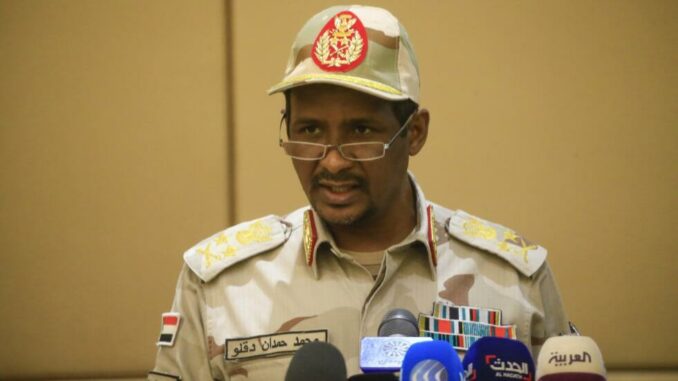
Two years into Sudan’s devastating civil war, the paramilitary Rapid Support Forces (RSF) have declared the formation of a rival government, escalating fears of a permanent national fracture.
Led by Mohamed Hamdan Dagalo, the RSF on Tuesday (15 April) announced the establishment of a “Government of Peace and Unity” in territories it controls, including much of Darfur. The move comes as the conflict — now entering its third year — has displaced over 13 million people and killed tens of thousands. With no representatives from either warring faction present, an international donor conference in London, taking place on the same day, urged an “immediate and permanent ceasefire,” pledging over €800 million in humanitarian aid.
In February, the RSF and its allies signed a charter in Kenya’s capital Nairobi declaring a “government of peace and unity” in areas they control. Dagalo claims the new RSF-backed administration represents a broad coalition committed to a “roadmap for a new Sudan,” with a 15-member presidential council symbolizing regional unity. However, experts warn this may mark a de facto partition of Africa’s third-largest country. With the RSF seizing control of nearly all of Darfur, “the territorial division that’s occurring could mean a de facto separation,” said Sharath Srinivasan, a professor at Cambridge University and an expert on Sudan.
In Darfur, the humanitarian situation is dire. The RSF has laid siege to El-Fasher, the last major city outside its control. The United Nations reports say at least 400 people have died in recent clashes, and the RSF’s capture of the Zamzam displacement camp has forced nearly 400,000 civilians to flee famine-stricken areas. The United States condemned recent RSF attacks on civilians, while the UN reiterated calls to halt external arms flows into Sudan. With both sides accused of war crimes and no peace talks in sight, Sudan’s future hangs in the balance as the country teeters on the edge of permanent division.
